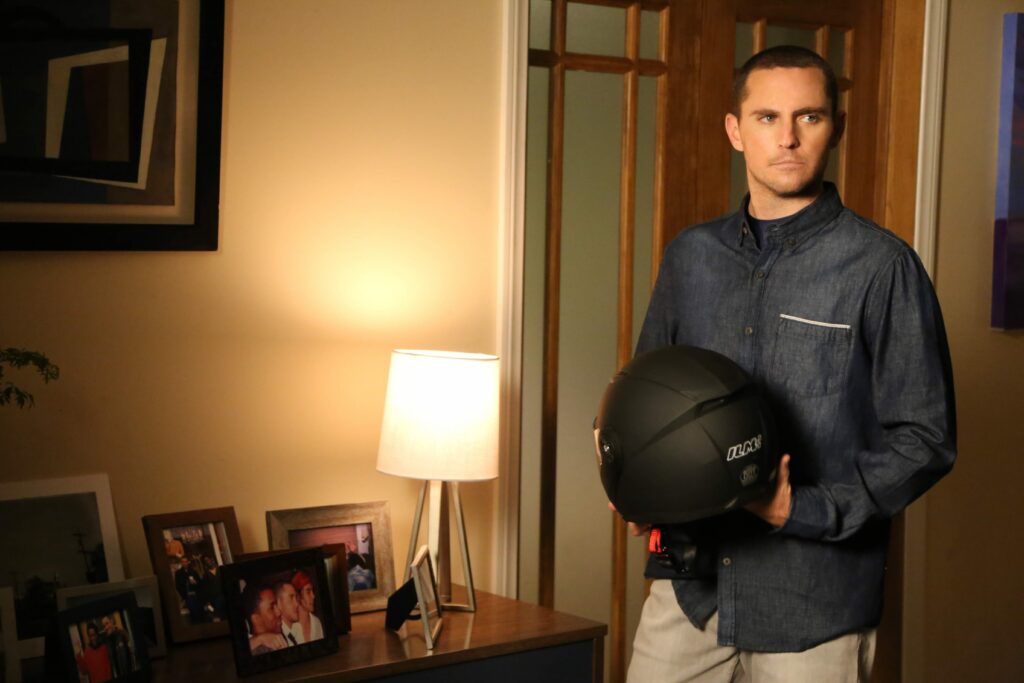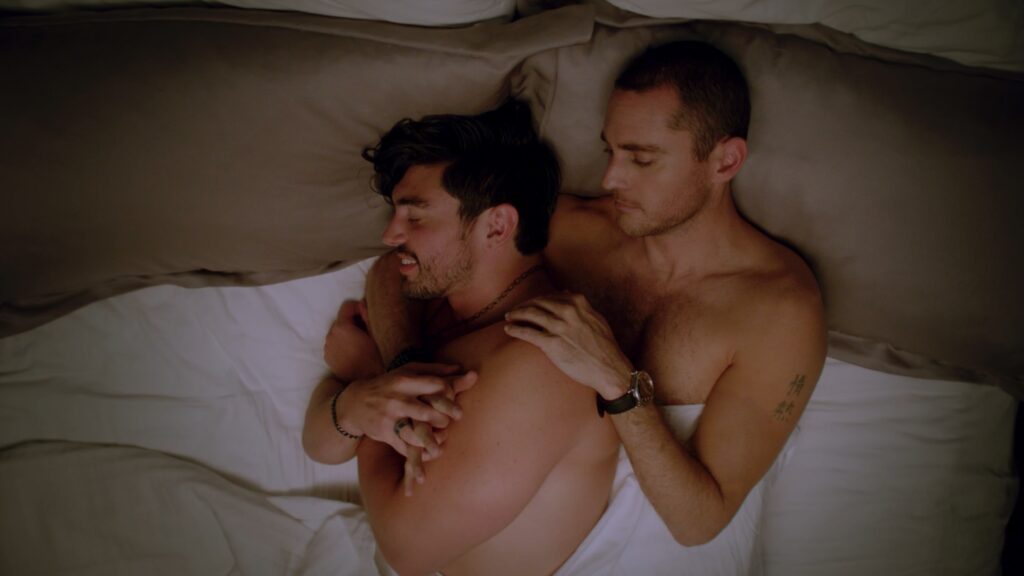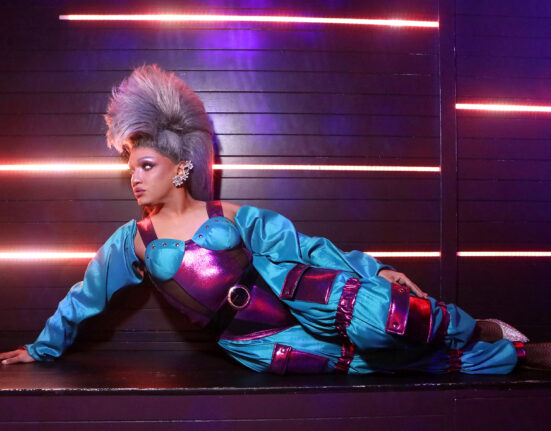
The sequel to the trailblazing drama from 2006 is out now on all TV on-demand platforms. Boy Culture: Generation X stars Derek Magyar and Darryl Stephens in their iconic roles, and follows the on-again, off-again couple, now both 40, broken up, and tensely sharing a home out of financial necessity. When X (Magyar) attempts to plunge back into his previous job as a sex worker, he’s in for a rude awakening — he’s no longer the flavor of the month, and the entire industry has been transformed by changing attitudes, online platforms and PreP.
X reluctantly turns to a bratty Gen Z twink named Chayce (played by adorable newcomer Jason Caceres) to guide him back into the business.
Director and co-writer Q Allan Brocka (who also directed the original film) says Boy Culture resonated with audiences in 2006 because it showed LGBTQ+ relationships “in a positive way that embraced our sexuality and sexual experiences. There were not a lot of films doing this unless they focused on our trauma.”
Of Boy Culture: Generation X, he says, “The original focused on taking a risk to find love. Now, X has had love, and something’s not quite working, so he’s got to refocus on himself — who is he outside of love?”

Derek Magyar says of returning as X, “I love the character, the writing, the director. We are a family. We had a table read and it was like nothing had changed, except for the fact that we’d gotten a bit older.”
With age comes wisdom, giving Magyar a chance to play a more vulnerable anti-hero. “I think X has grown a lot, and still has a lot to learn. I think he is well-intentioned, but I don’t think he is the best communicator and often gets himself in trouble. He goes back to hustling because it’s something he knows he is good at, and he wants to show Andrew he can handle taking care of his part of the life that they share — or shared.”
Darryl Stephens says, “When I heard Derek was coming back, I breathed a huge sigh of relief. Not only would the fans be able to see us together again after all these years, but my job in telling this story would be exponentially easier.”
The dynamic between X and Andrew is relatable because it’s built on truth. “We all reach that point in our lives where we are suddenly questioning what we believed was good enough,” Stephens offers. “And we wonder … is that all there is to love? Because that’s what we all deserve, right? To be happy with ourselves?”
Jason Caceres was a teen when the first movie released. “I was in high school,” he says, “and watched it at a highly inappropriate hour to avoid having any difficult conversations with the people in my life. I remember starving for any content that would help me understand what I was feeling.”

Times have changed, but queer youth are still starving for positive and realistic portrayals, and Boy Culture: Generation X pulls no punches in delivering both.
Matthew Rettenmund, author of the novel on which the films are based, and who co-wrote Boy Culture: Generation X with Q. Allan Brocka, says that along with aging among gay men, the new film “is even more diverse, and also talks a lot more about race, age-gap issues, the status of safer sex, bisexuality, social media image-making, cosplay … There is something startling and thought-provoking at every turn.”
Producer Philip Pierce says he hopes “viewers will take away a deeper understanding of the ways that sex, love and money impact their own lives. X’s profession as an older sex worker allows us to experience, both comedically and dramatically, a rather extreme version of these forces.”
Learn more here.

